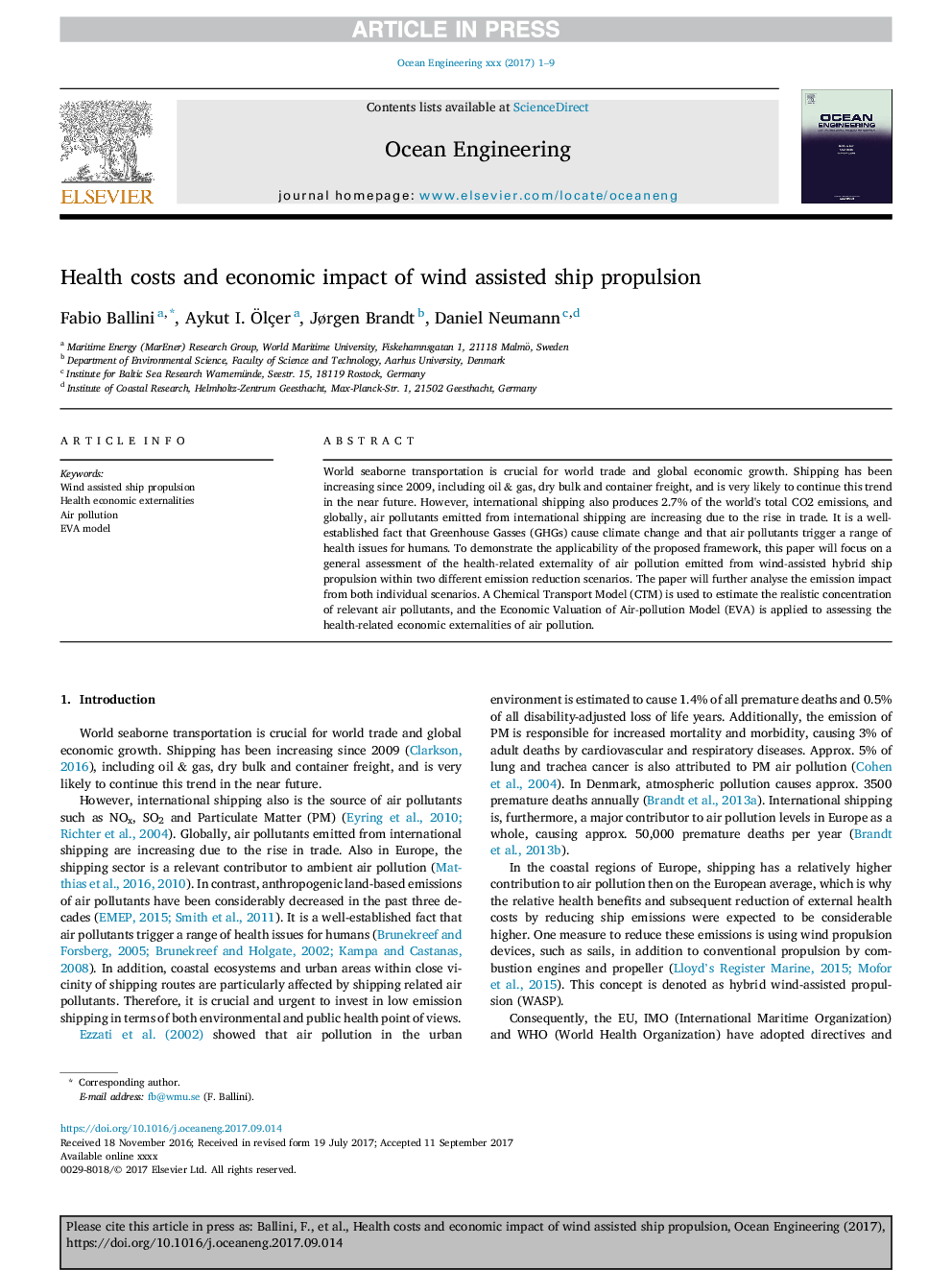| Article ID | Journal | Published Year | Pages | File Type |
|---|---|---|---|---|
| 8063710 | Ocean Engineering | 2017 | 9 Pages |
Abstract
World seaborne transportation is crucial for world trade and global economic growth. Shipping has been increasing since 2009, including oil & gas, dry bulk and container freight, and is very likely to continue this trend in the near future. However, international shipping also produces 2.7% of the world's total CO2 emissions, and globally, air pollutants emitted from international shipping are increasing due to the rise in trade. It is a well-established fact that Greenhouse Gasses (GHGs) cause climate change and that air pollutants trigger a range of health issues for humans. To demonstrate the applicability of the proposed framework, this paper will focus on a general assessment of the health-related externality of air pollution emitted from wind-assisted hybrid ship propulsion within two different emission reduction scenarios. The paper will further analyse the emission impact from both individual scenarios. A Chemical Transport Model (CTM) is used to estimate the realistic concentration of relevant air pollutants, and the Economic Valuation of Air-pollution Model (EVA) is applied to assessing the health-related economic externalities of air pollution.
Keywords
Related Topics
Physical Sciences and Engineering
Engineering
Ocean Engineering
Authors
Fabio Ballini, Aykut I. Ãlçer, Jørgen Brandt, Daniel Neumann,
